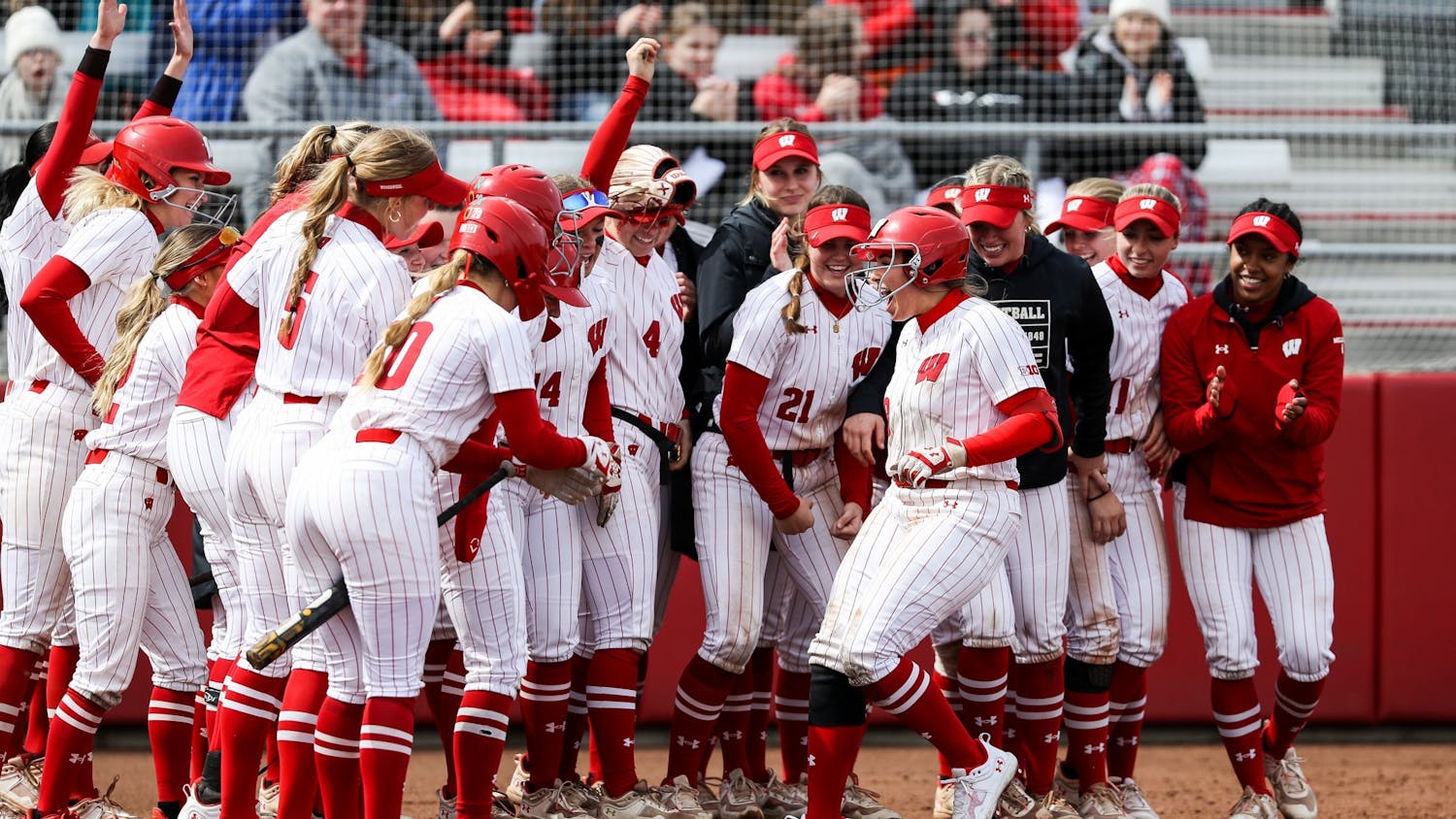When I first arrived in Madison around a month ago from the United Kingdom, it was no secret I was most excited to experience American college sports culture.
One of the main reasons I chose the University of Wisconsin-Madison was because it had an 80,000-capacity stadium on campus. In comparison, current Champions League, Premier League and FA Cup winners Manchester City play in a stadium of just over 50,000. Only two stadiums in England, one of them being Wembley Arena, can seat over 80,000. I don’t think I’ll ever be able to wrap my head around this.
University sports culture in the U.K. is practically nonexistent compared to what America has to offer. Even the top teams are watched by a mere handful of people as students are barely encouraged to come and watch.
Why is there such a difference?
Sport is ingrained into British culture. From football to cricket, it is no secret we also have an intense love for sports. So why doesn't the university athletic system reflect this, especially compared to American athletics?
The excitement and investment pumped into America’s love of sports has steadily grown for decades. From the 1960s to the 2000s, advancements in sports broadcasting helped to transform how Americans perceived sports.
For instance, the introduction of NFL films in 1962 sought to show the ballet and brutality of American football. Sports were no longer just a game — it was an all-American spectacle. As intrigue grew, more people who may have never considered attending a sports game were now keen to experience the performance in which a game now promised.
A stadium was no longer filled solely by young men, and sports franchises knew this. They were committed to delivering a production of pure entertainment — cue the cheerleaders and mascots. Of course this spectacle did not just stop in America’s main sports leagues such as the NFL or the NBA. It could also be found on college campuses across the country.
Upon my first Badgers football game against Buffalo, this is exactly what I was presented with. From tailgates to cheerleaders and the marching band, it was a day wrapped up into a display of the famous American school spirit. As we headed back from Camp Randall after a three-hour game under the hot sun — the hottest Badgers game on record — I couldn’t help but wonder why the U.K. has nothing that comes close to this gameday experience.
The major differences mainly come down to varying financial approaches toward college sports. Most up-and-coming athletes in the U.K. would not attend university and are more likely to be seen in a separate sports academy, whereas in the U.S., the term “college athlete” comes from the fact that attending college will improve your chances of going professional.
In 2012, the Premier League carried out their youth development strategy called the “Elite Player Performance Plan,” which aimed to increase the amount of homegrown players coming up through the U.K. system.
This plan placed a further importance on the academy system. For those wanting to become a professional football player, attending a university would not be seen as the right path to reach professional success.
However, in the U.S., there are the college-to-professional pipelines, such as the NFL draft. The aim of becoming professional is closely tied to the college system, whereas the U.K. academics and university athletic system are kept completely separate.
Although the importance of the NFL draft may seem obvious to American readers, it is unlike anything else within the world of athletic recruitment from an outside perspective. Whether it's Joe Burrow from Louisiana State University or Patrick Mahomes from Texas Tech, the colleges these athletes attend are a major part of their identity and success.
I love the American approach to college sports. From the state-of-the-art facilities to unwavering support from different generations of Badgers fans, it is certainly a unique experience. The pure energy which finds its way into every section of Camp Randall was a true joy to be a part of. It encapsulates why we love sports. And the “Jump Around” tradition which plays before every fourth quarter only added to my appreciation of game day traditions.
Unfortunately, I don't think the U.K. will ever reach America’s level of school spirit.
Perhaps this comes down to the difference in U.K. and U.S. culture as a whole. Beyond university level sport, Premier League football teams have attempted to bring elements of the American experience. Nothing has really made any impact.
Only one team in the league, Crystal Palace Football Club from South London, has cheerleaders. When you Google this cheer team, most of the articles that come up reflect the confusion that surrounds them. Most people attending football games simply question why they are there and head for a pint of beer inside the stadium instead (that pretty much sums up the U.K.).
I think I can admit I feel quietly disappointed there is nothing quite like the wild world of American college sports back home. It is certainly something everyone should experience at least once.






